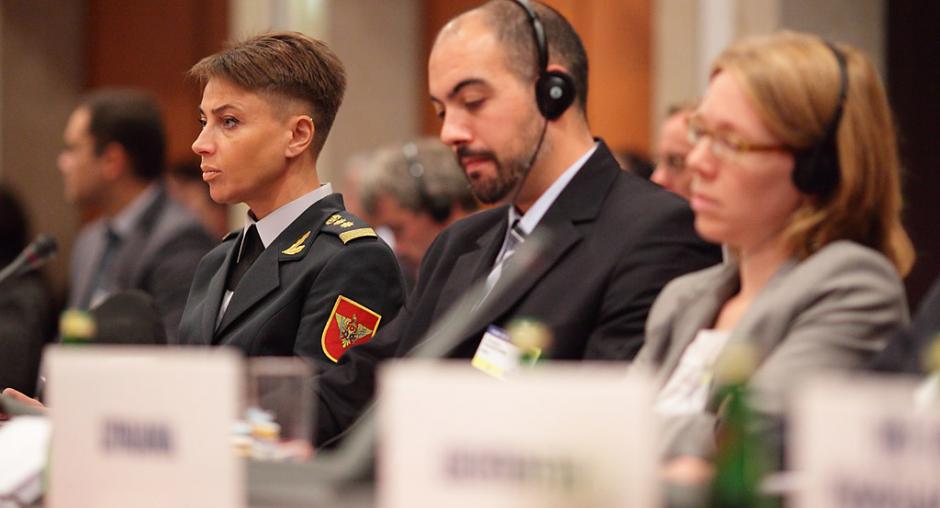Human rights, gender and the security sector

The OSCE has long acknowledged that equal rights for women and men and the protection of all human rights are essential to sustainable peace and security. A security sector that is gender balanced and diverse can better meet the needs of the community it serves.
Increased effectiveness of the security sector
A human rights and gender sensitive approach in the daily activity of the police, armed forces, border agencies and other security sector actors, strengthens their overall effectiveness and responsiveness. When security providers pay attention to the needs and rights of both women and men, they become better professionals and, in turn, can better protect the entire community.
ODIHR promotes this through the Gender and Security Toolkit and other human rights training materials, as well as assisting national defence and police academies to mainstream human rights and gender standards in their curricula. The Office also reviews new or existing legislation, regulations, and codes of conduct that govern the activities of the security sector to ensure that a human rights and gender perspective is incorporated into their work.
Respect for and protection of the rights of security sector personnel
Security sector personnel are also entitled to the same rights and protection as all other people, subject to certain limitations imposed by the nature of their profession. ODIHR advocates that all members of the armed forces, police and similar security sector institutions, be able to exercise their civil, political, social and economic rights. When the human rights and fundamental freedoms of security sector personnel are protected, they will be more likely to uphold and respect the rights and freedoms of others when carrying out their duties.
ODIHR raises awareness of the rights of security sector staff through the Handbook on Human Rights and Fundamental Freedoms of Armed Forces Personnel and organizes discussions in this area together with OSCE field operations, the Geneva Centre for the Democratic Control of Armed Forces, defence institutions in OSCE participating States, and non-governmental organizations. Follow-up “peer-to-peer” events focus on further analyzing the issues and challenges identified during the discussions.
Women and diversity in the security sector
The security sector must reflect the diversity of the community it serves and protects. International and national legal standards indicate that men and women should have equal access to employment within the police, armed forces, and other similar organizations (gendarmerie, border guards, etc.) and should not experience discrimination on any grounds. Additionally, it is important to ensure that newly recruited men and women of all backgrounds remain in these institutions and that significant numbers of them are able to reach the highest positions.
ODIHR underscores these standards through the Gender and Security Sector Reform Toolkit and Guidance Notes on Gender in Security Sector Oversight, and training sessions highlight the importance of recruiting, retraining and promoting women in all security sector institutions. The Office also reviews national action plans for the implementation of UN Security Council Resolution 1325 on Women, Peace and Security, as the basis for increased gender balance in the security sector and encourages the development of such plans in all OSCE participating States.
The basis for this work can be found in the following core OSCE commitments and international instruments:
- OSCE Code of Conduct on Politico-Military Aspects of Security
- OSCE Ministerial Council Decision No. 14/05 on Women in Conflict Prevention, Crisis Management and Post-Conflict Rehabilitation
- OSCE Ministerial Council Decision No. 15/05 on Preventing and Combating Violence against Women
- UN Security Council resolutions on women, peace and security 1325, 1820, 1888, 1889, 1960, 2106 and 2122
- Convention on the Elimination of All Forms of Discrimination against Women.
ODIHR works with all members of the security sector in OSCE participating States as well as local and international partners and non-governmental organizations, to improve compliance with these standards. To ensure maximum impact, ODIHR collaborates with OSCE field operations, the Transnational Threats Department and the Gender Section of the OSCE Secretariat.
